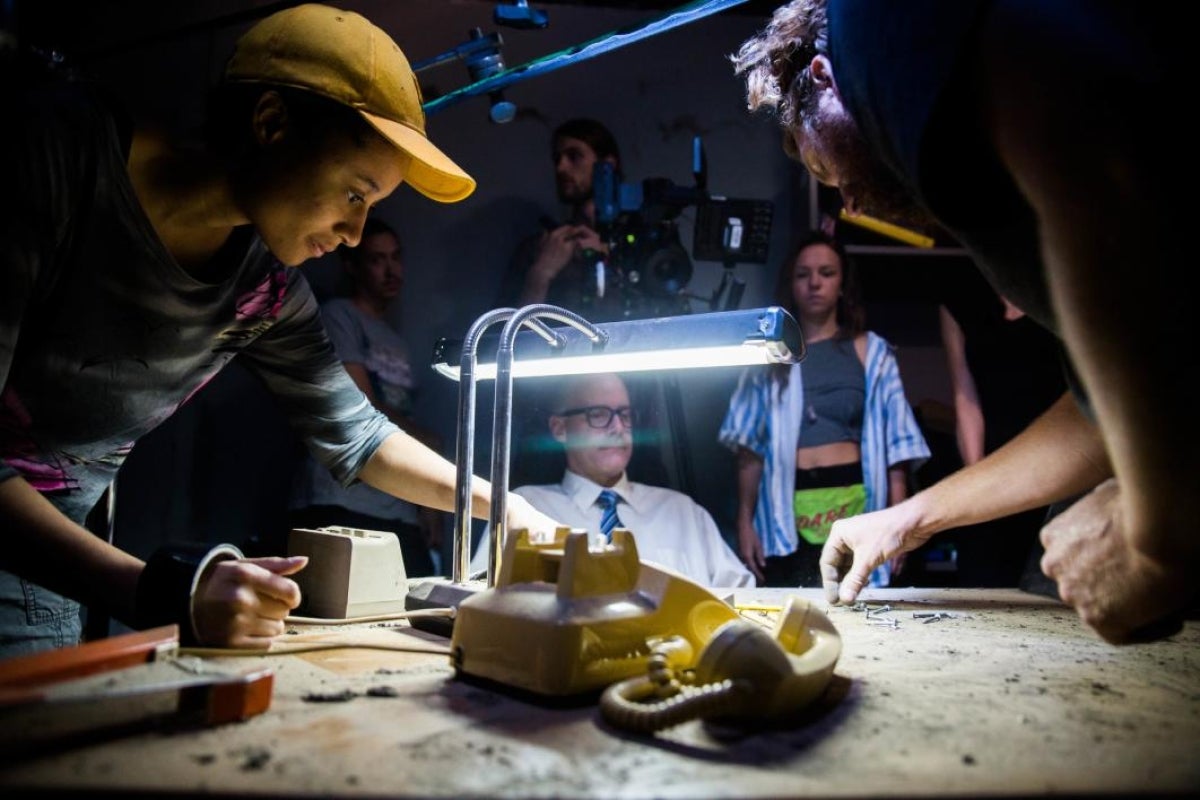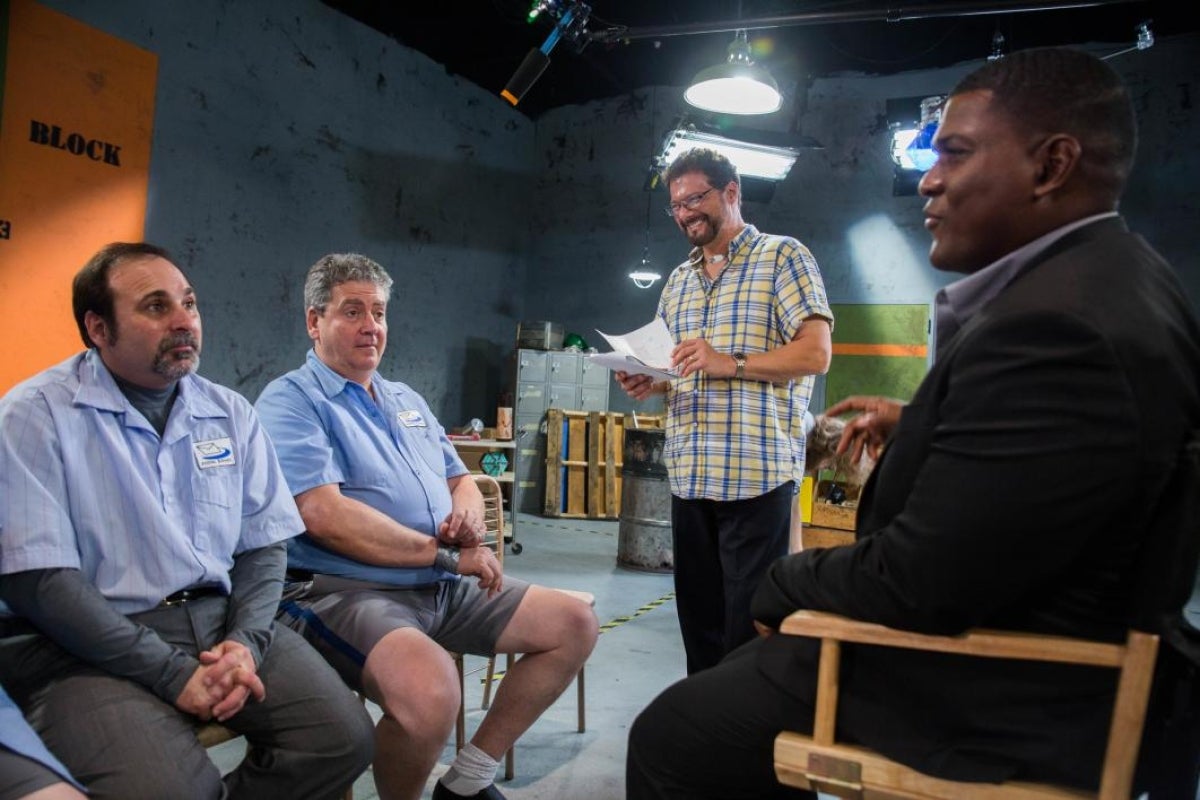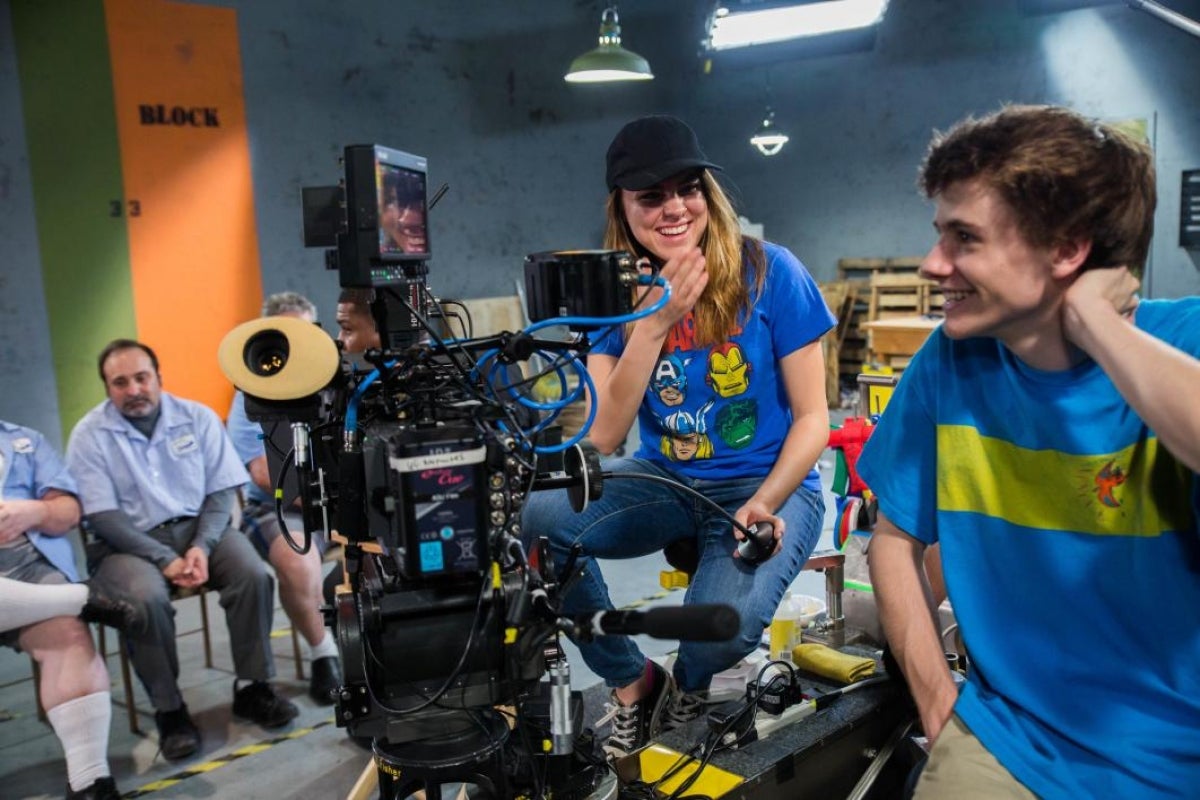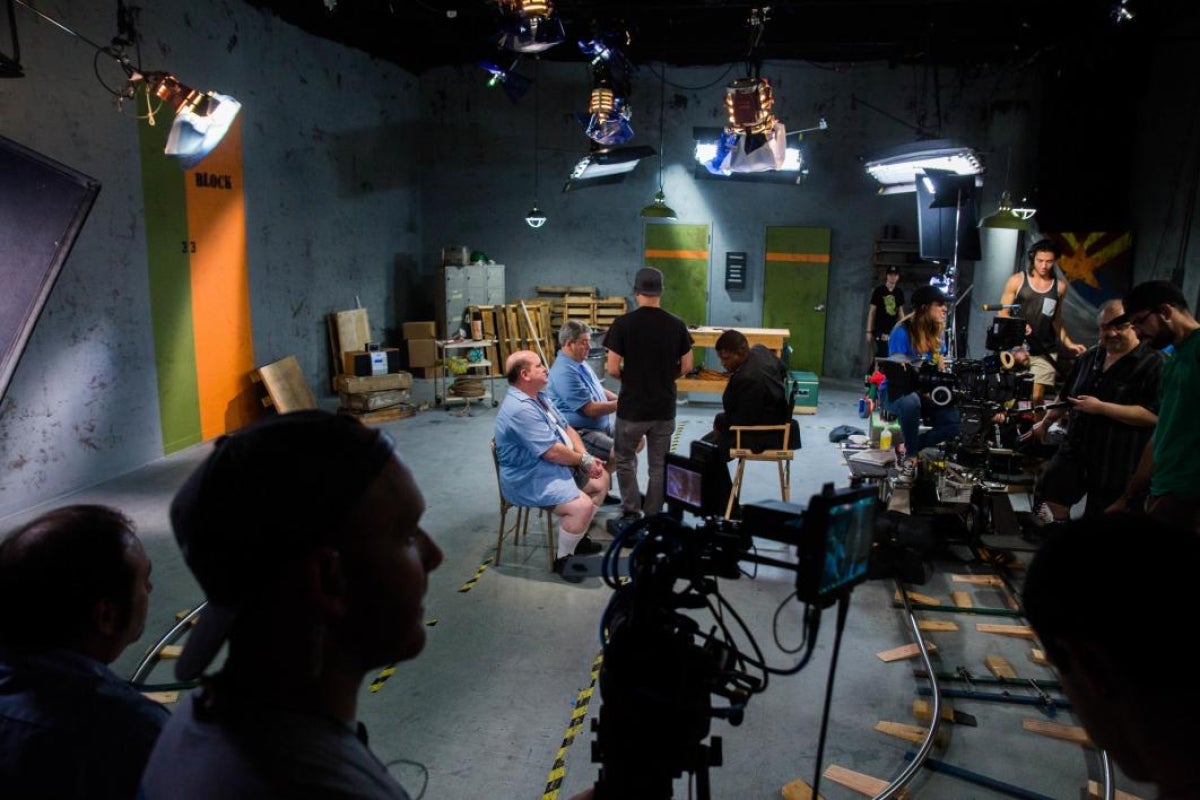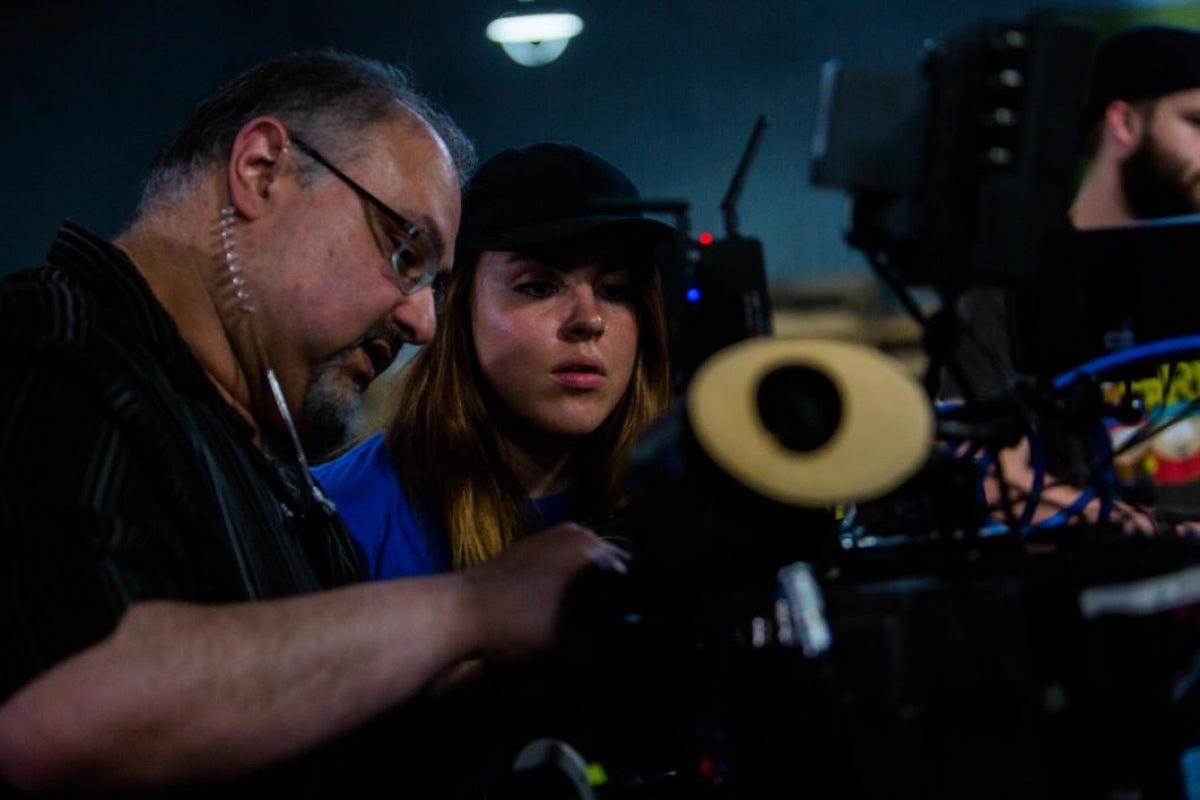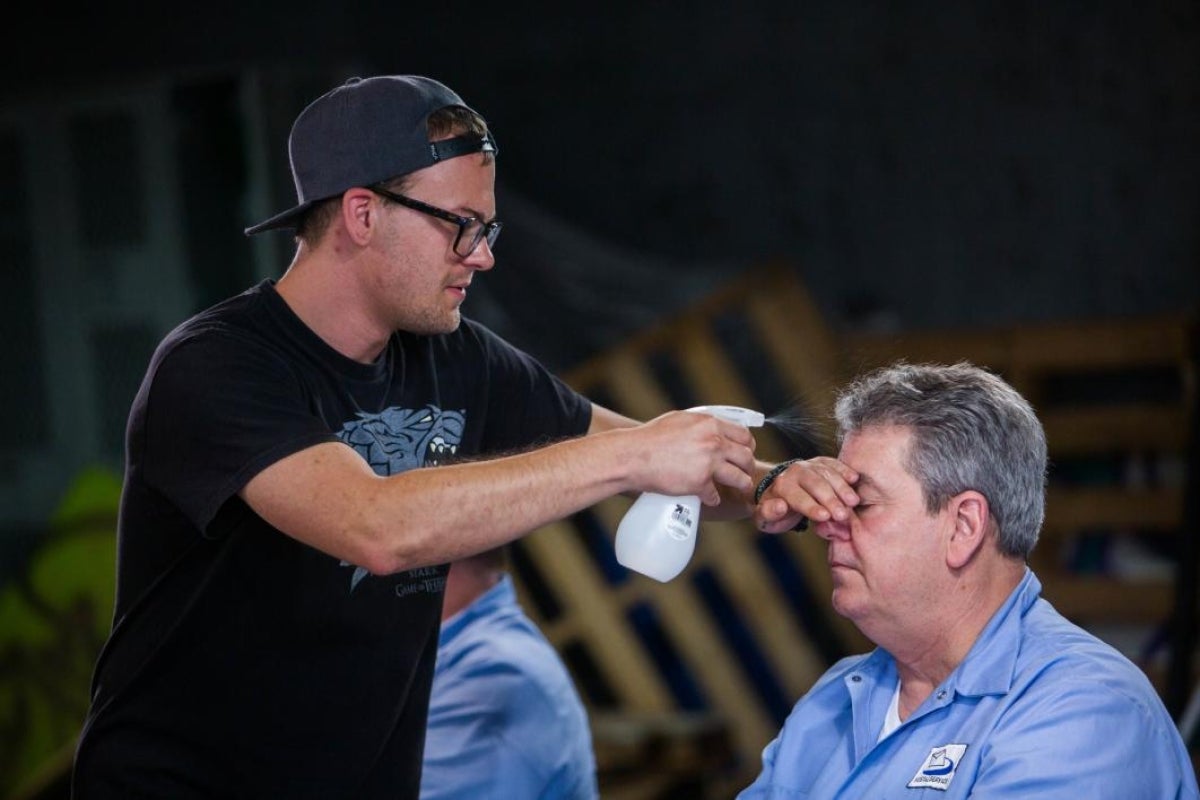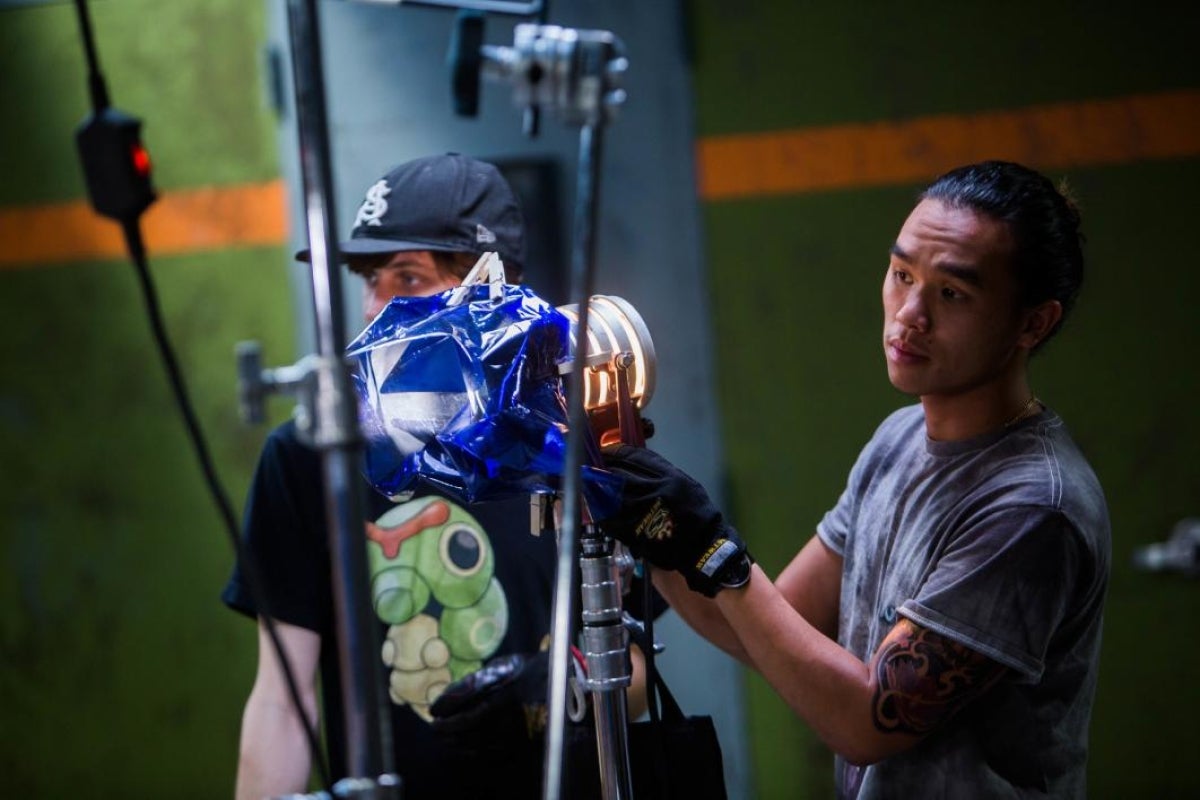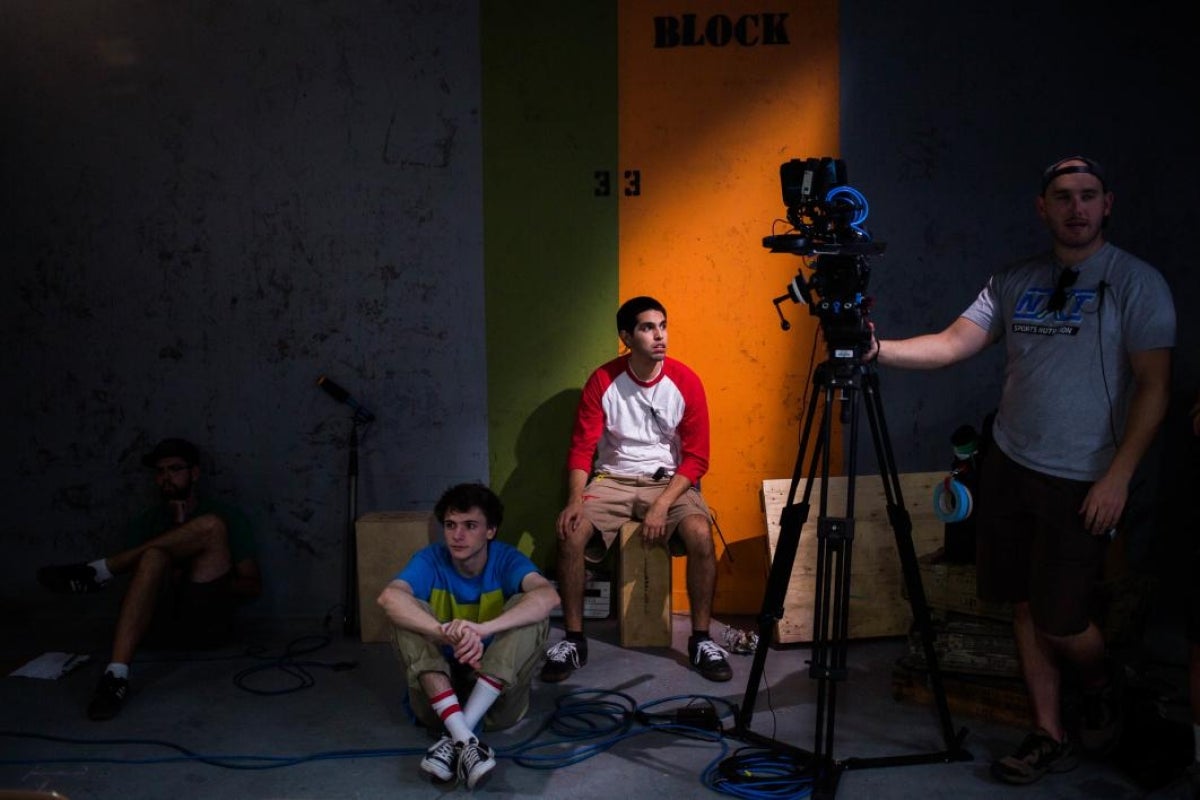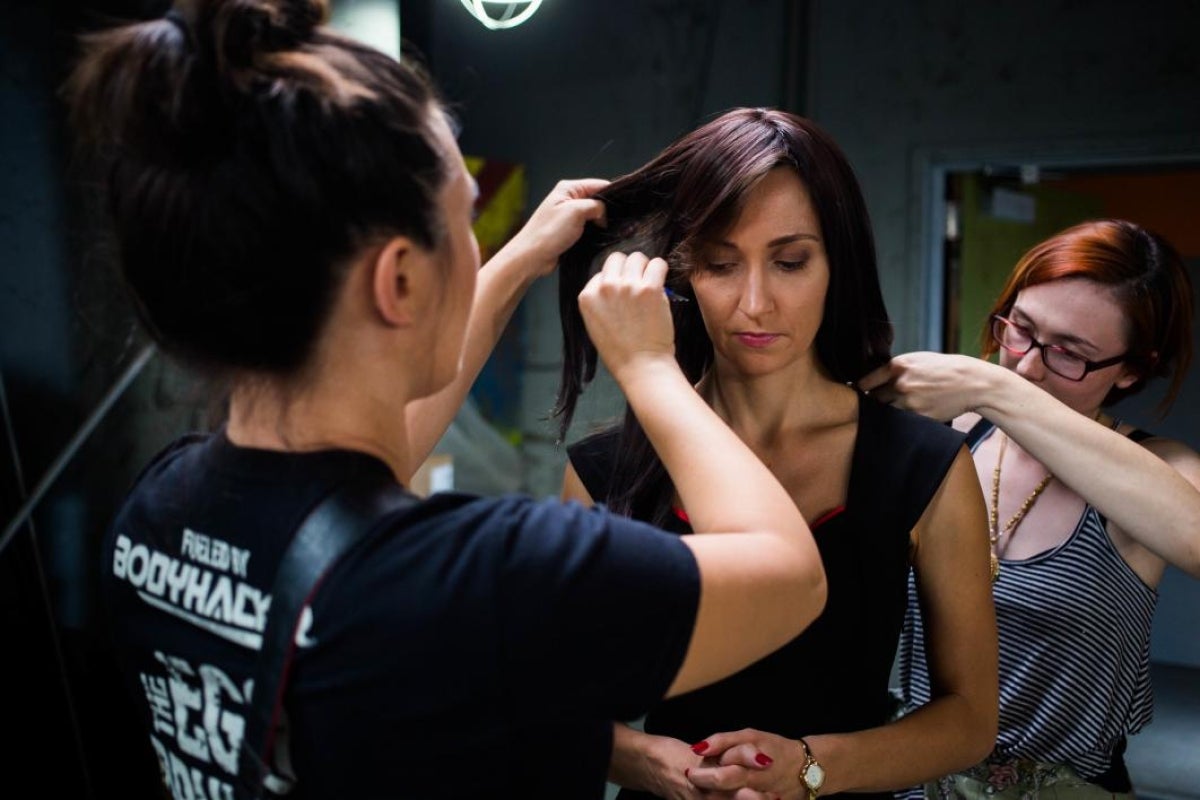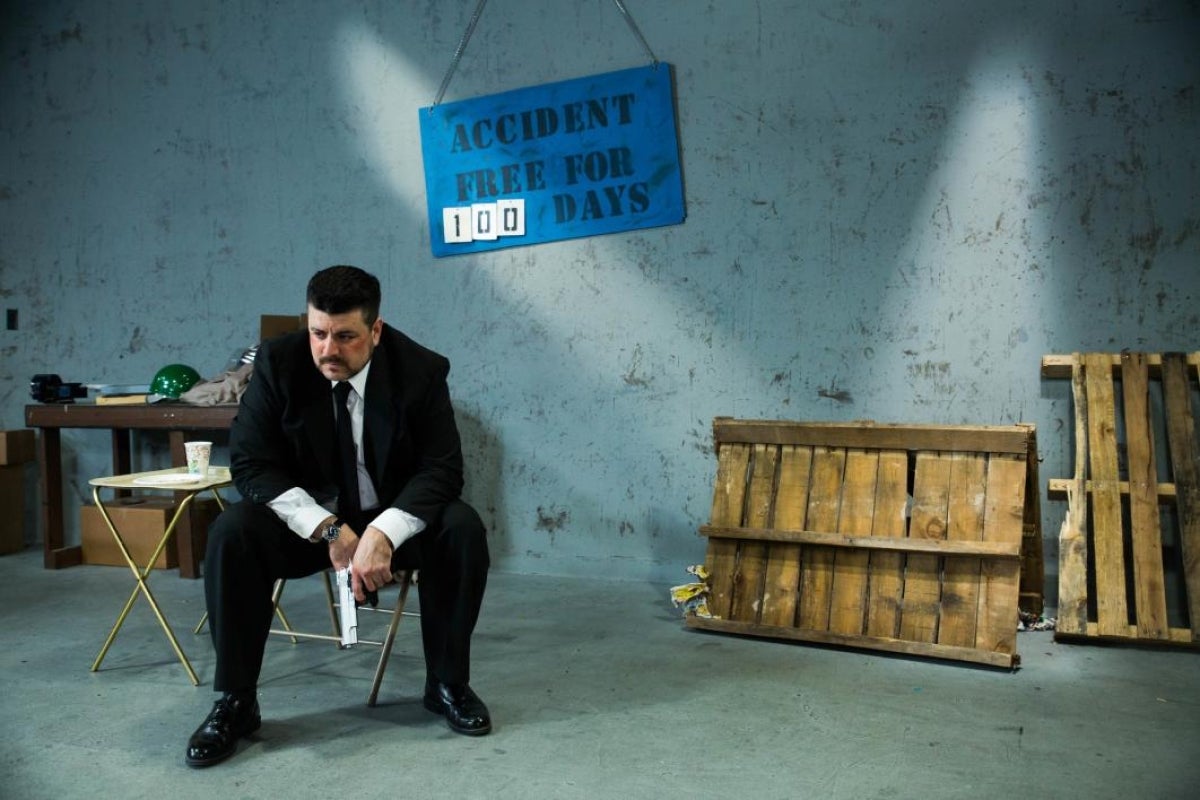Valley theater vets Gene Ganssle and Ron Hunting had been meeting to play poker for roughly five years when Hunting began to lose the ability to shuffle.
That was around 2011, when he was diagnosed with amyotrophic lateral sclerosis (ALS)ALS is also known as Lou Gehrig's disease..
The pair remained good friends, and Hunting continued to be active in the local theater scene, determined to produce work as long as he was able.
In 2014 Ganssle, a lecturer in the School of Film, Dance and TheatreThe School of Film, Dance and Theatre is an academic unit of the Herberger Institute for Design and the Arts at Arizona State University. at Arizona State University, attended a staged reading of a play Hunting had written, titled “Anything You Hear and Only Half of What You See.”
Intrigued by its dark comedy and sense of mystery, Ganssle thought it would make a great film. So he broached the subject with Hunting, who was immediately receptive.
Time was of the essence, though, a fact both were acutely aware of.
“I’d never actually directed a feature before, and I thought this was the right time,” Ganssle said. “But I wanted to make sure he was at the premiere, so I moved forward quickly.”
As luck would have it, a fellow Herberger Institute faculty member, instructor Christopher LaMont, was looking for a film to take the place of another that had fallen through for ASU Film SparkIn past years, ASU Film Spark has produced the films “Car Dogs,” starring George Lopez, and “Justice Served,” starring Marvin Young, better known to most of the world as singer/rapper Young MC., a summer feature-film internship program that gives ASU film students the opportunity to gain experience working on a “Hollywood-style” film set.
So in July 2015, production officially began on “Postmarked,” Ganssle’s film adaptation of Hunting’s play, with support from ASU Film Spark that included a crew of more than 30 ASU students, as well as eight alums, and roughly $200,000 worth of production assistance.
“ASU making us their summer film project was a big lucky break for us, because our budget was originally only $40,000,” Ganssle said.
The plot of “Postmarked” centers on everyday postmen who may have witnessed something they shouldn’t have, and are subsequently taken hostage by a deadly organization. All manners of high jinks and bamboozlement ensue.
Hunting himself spent years working in the postal service, which lends a sense of authenticity to the story.
Filmmaking practices major Lila Hickey worked as an electrician and gaffer for the lighting department during filming. She plans to move to Los Angeles when she graduates this December to pursue a career in the film industry. The experience she gained while working on “Postmarked” has been invaluable.
“Not many kids still in film school have a feature-length film on their resume,” she said. “It’s a very practical application of all the things I have learned.”
That’s the whole point, said LaMont: “As a university, it’s important for us to give our students the biggest opportunities that they can to learn.”
Half of all proceeds from the film will go to fund ALS research.
“I like to call it a comedy for a cause,” said Ganssle.
“Postmarked” will hold an invited preview locally in January 2016.
To learn more about “Postmarked,” and to stay up-to-date on premiere info, visit the film’s website here, or its Facebook page here.
To help fund the film, visit its gofundme page, here.
More Arts, humanities and education

‘It all started at ASU’: Football player, theater alum makes the big screen
For filmmaker Ben Fritz, everything is about connection, relationships and overcoming expectations. “It’s about seeing people beyond how they see themselves,” he said. “When you create a space…

Lost languages mean lost cultures
By Alyssa Arns and Kristen LaRue-SandlerWhat if your language disappeared?Over the span of human existence, civilizations have come and gone. For many, the absence of written records means we know…

ASU graduate education programs are again ranked among best
Arizona State University’s Mary Lou Fulton College for Teaching and Learning Innovation continues to be one of the best graduate colleges of education in the United States, according to the…



